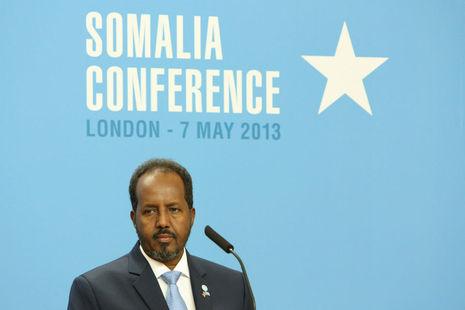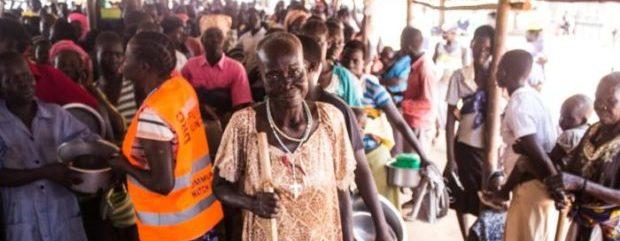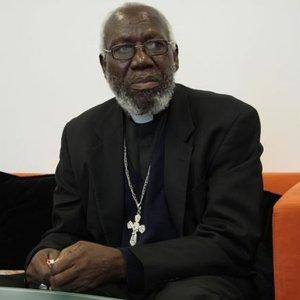Somalia 2013: “˜new’ deal, old principles – By Dominik Balthasar

 While the Communiqué that came out of the 2013 London Conference on Somalia reiterated the formal agreement on the “New Deal” initiative on aid effectiveness, it appears to have ultimately restricted the Somali government’s political room for manoeuvre. This largely results from the summit’s emphasis on outcomes over processes, which not only jeopardizes the “˜New Deal’, but risks complicating rather than facilitating Somalia’s state-making project in the near future.
While the Communiqué that came out of the 2013 London Conference on Somalia reiterated the formal agreement on the “New Deal” initiative on aid effectiveness, it appears to have ultimately restricted the Somali government’s political room for manoeuvre. This largely results from the summit’s emphasis on outcomes over processes, which not only jeopardizes the “˜New Deal’, but risks complicating rather than facilitating Somalia’s state-making project in the near future.
In light of recent progress and an attendant rise in optimism regarding Somalia, expectations of the recent London Conference ran high. While the UK should be applauded for its continued dedication to keeping Somalia and its challenges on the international community’s agenda, the conference did not fully live up to its potential. For one, the “New Deal” and its proper benefits were not completely embraced. Instead, its underlying core principles, such as granting “country-led and country-owned transitions out of fragility”, were attenuated by the summit’s emphasis on preconceived outcomes.
For another, critical matters pertaining to economic reconstruction and political settlements were apparently neglected. Although it is true that the summit was followed by a one-day conference on trade and investment in Somalia, the complete absence of economic recovery from the main conference’s agenda remains remarkable. Thus, rather than taking a chance on a fresh start, the conference seemingly rehashed old principles instead.
Focussed on outcomes rather than processes
The summit was too firmly concentrated on agreeing particular outcomes, rather than taking a more process-oriented approach. The Communiqué urges the international community to continue its “results-oriented support”, and locks the Somali government and its state-making trajectory in a commitment to form a “fully federal government” and deliver “democratic elections in 2016″. While it is understandable that Somalia’s partners want to see the Federal Government commit to tangible results, the international community’s eagerness to maintain significant political leverage over Somalia’s trajectory reveals the complexities and caution around reducing foreign political influence.
While the Somali government co-hosted the summit, it is not hard to see why it must have felt constrained to demand additional policy space – after all, the Somali government depends on the good will and financial resources of donors.
However, by not handing substantial control over to Somali stakeholders, international actors not only undermine the basic idea of the “New Deal”, but risk jeopardising Somalia’s state-making prospects. For the state-making endeavour to succeed, the Somali government needs substantial policy space to accommodate the evolving and conflict-prone nature of such projects. Yet, this policy space can only emerge by focusing on processes rather than by committing to a rigid set of fixed outcomes largely shaped by external forces. That latter has hindered rather than helped rebuild the Somali state is attested by past decades marked by international interference.
Absent topics, lack of alternatives
The conference overly concentrated on issues of security, justice, and public financial management – aspects that are conspicuously of concern to an international community that feels threatened by Somali extremism, worries about government corruption of donor funding, and prioritises a human rights agenda. This particular focus meant that the summit neglected other pressing topics.
Just as in 2012, the 2013 London Conference avoided the question of whether and how to engage with al Shabaab politically. Given that the Islamic insurgency movement appears to be dormant rather than defeated, and that the causes that led to its emergence and survival cannot be addressed by military means alone, a political solution to the political contestation remains crucial.
Economic reconstruction was also noticeably absent from the conference agenda. However, if recent military and political gains are not bolstered by establishing a productive economy that addresses mass unemployment, and creates livelihoods for the population, these gains might well be short-lived. In light of this and the fact that economic recovery features as the Somali President’s second goal of his six-pillar policy, one is left wondering why this topic did not feature at all during the joint-hosted summit.
As the conference focused so narrowly on specific outcomes, the Somali government’s policy space was significantly restricted. This is shown in the communiqué’s insistence on the establishment of a “fully federal government” – a process that has largely been objected to by the Somali government thus far, due to fears that federalism could weaken its own standing and prospects of state-making. However, the Somali government is now pressed to comply with a greater devolution of power to regional states, which is likely to complicate matters, not least as this leaves Somalia’s neighbours with continued influence to meddle in Somali politics.
Moreover, the question arises whether there are viable alternatives to the charted trajectory, in case the latter should not unfold as anticipated. What is the “Plan B” to which the Somali government and its international backers can revert, if the communiqué’s underlying assumptions – including the success of a federal model and the sustainability of the current security trajectory – do not hold?
While the international community pledged additional financial resources to Somalia and committed to helping the Somali government bolster its security apparatus, the jointly-hosted conference does not appear to have charted a new chapter for this conflict-ridden country. Rather, the summit outcomes seem to largely be a reworking of the international community’s concerns. The ultimate impact of the 2013 London Conference remains to be seen, but for now it appears that the international community is not prepared to fully buy into the “New Deal” and cede too much of its influence to its Somali partners. It remains to be seen how far this bodes ill or well for Somalia and its endeavour to re-engage in state-making.
Dr Dominik Balthasar is a TAPIR Fellow (2012-14), currently based at Chatham House.







[…] in places such as Afghanistan, Somalia, the DRC, and so on. As Dominik Balthasar recently wrote in African Arguments, “the international community’s eagerness to maintain significant political leverage . . . […]
[…] in places such as Afghanistan, Somalia, the DRC, and so on. As Dominik Balthasar recently wrote in African Arguments, “the international community’s eagerness to maintain significant political leverage . . . […]
[…] President – By Abdiaziz Abdi The Cost of Ignoring the Kismayo Crisis – By Abdihakim Ainte Somalia 2013: ‘new’ deal, old principles – By Dominik Balthasar Can Britain fix Somalia? – By Abdihakim Aynte Somalia seeks lasting support from London […]